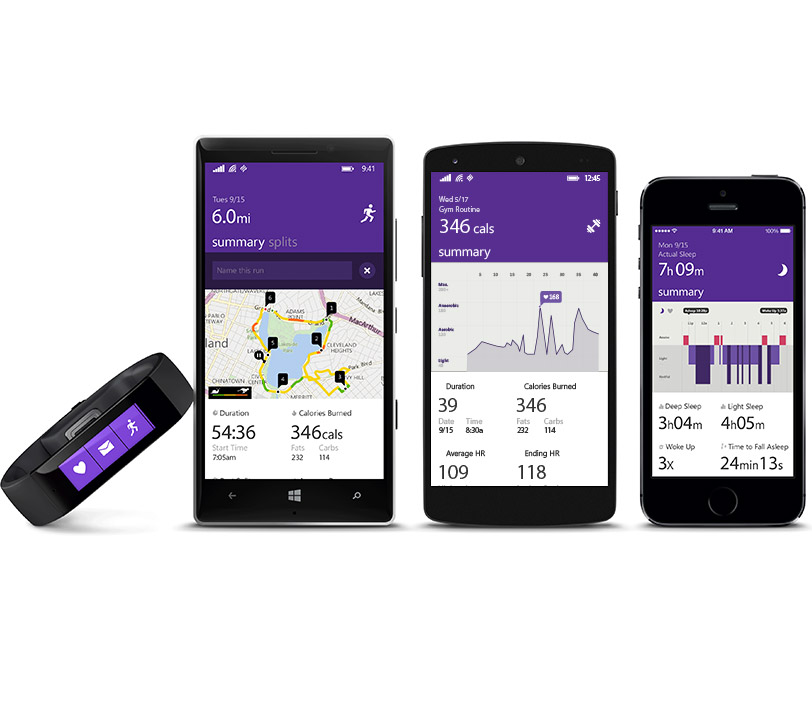
The rumors turned out to be true. Microsoft has officially entered the health-tracking wearable market, releasing the Microsoft Band smartwatch and Microsoft Health service.
Available cross-platform on Android, iOS and Windows Phone, Microsoft Band and Health can track and provide insights into a user’s heart rate, steps, calorie burning and sleep patterns. Microsoft Health also works with other wearable devices aside from Band, serving as an aggregated health data app a la Apple’s HealthKit. The service is integrated to start with wearables including Jawbone, MapMyFitness, MyFitnessPal and RunKeeper.
The Band fitness wearable hardware contains a built-in GPS, a UV sunlight monitor and regular battery life of more than two days without a charge, according to Microsoft. Microsoft Band also offers typical functionality of smartwatches and bands, providing notifications of incoming calls, texts and social activity. The wearable device also syncs with email, calendars, alarms and Microsoft’s Cortana digital assistant.
Microsoft plans to release SDKs and announce further partnerships for the Health service, according to a blog post by Microsoft corporate VP Tom Holmdahl, and Microsoft Band is available starting today, Oct. 30, online and in Microsoft Stores for $199.
Facebook open-source Osquery: View an OS as a relational database
Facebook has released Osquery, an operating system instrumentation framework and toolset exposing an OS as a high-performance relational database, as open-source.
Osquery allows developers to write SQL-based queries to explore operating system data and represent OS attributes such as running processes, loaded kernel modules and open network connections in SQL tables, according to a blog post from Facebook software engineer Mike Arpaia.
“We’ve been working on a framework called osquery which attempts to approach the concept of low-level operating system monitoring a little differently,” Arpaia wrote. “SQL tables are implemented via an easily extendable API. Several tables already exist and more are being written…One of the aspects of SQL that makes it so applicable to operating system analytics is the ability to join different tables together.”
Osquery is cross-platform with native packages for all supported operating systems, and is made up of a modular codebase of high-performance components with documented public APIs, according to Arpaia. The framework also comes with an interactive query console, osqueryi, providing a SQL interface to try out new queries, and large-scale host monitoring with the osqueryd host monitoring daemon.
The code and documentation for Facebook’s Osquery are available on GitHub.
Adobe open-sources Spindle for Big Data analytics processing
Adobe Research has released an open-source project called Spindle, a prototype Apache Spark-based web analytics query engine designed around the requirements of production workloads.
Spindle exposes query requests through a multi-threaded HTTP interface implemented with the Spray open-source HTTP integration toolkit. Queries are processed by loading data from the Apache Parquet columnar storage format onto the Hadoop distributed filesystem to process real-time analytics. More information about Spindle is available on GitHub.
LinguaSys launches “GlobalNLP” natural language processing API portal for developers
Big Data natural language processing software provider LinguaSys has released GlobalNLP, a RESTful cloud-based API portal enabling software developers to understand and extract meaning from unstructured or conversational text across languages, according to the company.
GlobalNLP offers features including customizable language models, attribute tags, concept tagging, domain detection, a full semantic network, keyword extraction, language detection, part-of-speech tagging and cross-lingual retrieval through a natural language interface. More information is available here.






